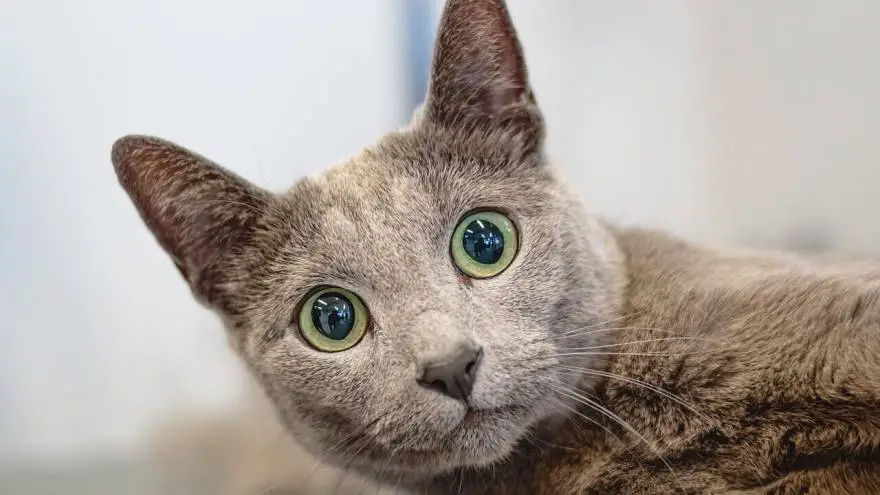5 Most Common Reasons People Don't Like Cats
16.05.2022.
The fact that some people don't like or even despise cats is almost inconceivable to those who consider them family members. However, some reasons people consider logical for their dislike of cats, even if we don't fully understand why they despise these amazing creatures. Here are the main reasons people don't like cats.
1. Complicated relationships
Some people dislike cats' mood swings and aloofness. To let others know that they're upset or scared, the cat might hiss or swat them.
Cats may appear unappreciative when compared to enthusiastic and people-loving canines. The main reason is that cats and dogs developed very different lifestyles in the wild. Since large prey could only be hunted by a team, dogs adapted to live in packs. Unlike domestic cats, wildcats are solitary hunters and fishers. Cats are adaptable to changes and daily routines because of their independent nature.

RELATED: How To Train Your Cat: Expert Tips & Tricks
To form close relationships with their owners, cats must be socialized when they are kittens. The most common cause of a cat's standoffish behavior is the introduction of a new person into the household.
Even the most reticent of felines can tell if a newcomer is safe or not. It's common for a cat to warm up to a new person if they've had time to know them.
2. Allergies
People who are allergic to cats understandably avoid being around them. It's possible that they don't actually "hate" cats, but their allergies to cat dander may make them feel that way.
Most people allergic to cats are not allergic to the cat's coat, as most of us believed at first. Instead, humans can be allergic to Fel-D1, a coat-protective protein produced by cats' skin. People who are allergic to cats may also react to proteins found in the cat's urine and saliva.
It's a widely held misconception that cat allergies are caused solely by "dander and hair." The true cause is a chemical reaction capable of causing powerful reactions. Anaphylaxis, a life-threatening allergic reaction, can be caused by allergens cats produce, just like nut allergies and other food allergies. Airways can become blocked, necessitating immediate medical attention.
RELATED: Indoor Vs. Outdoor Cats: Which is Better?
3. Wide territories
Even if it's not their yards, most cats will choose to relieve themselves in rich, deep garden soil if given the option. In order to communicate with cats in the same area, cats that live outside will shamelessly leave their feces out in the open. Cats have no concept of yard boundaries, so they will consider nearby homes and yards as potential areas where it's appropriate to relieve themselves.

To mark their territory, cats will also spray urine on the doors, fences, and walls of other homes in the neighborhood, especially if other cats live there. When indoor cats either see other cats from a window or can smell their urine, they are faced with two distinct issues:
- It is common for cats to react aggressively when they see a stranger in their yard, even if that aggression is aimed toward someone in their own housemates.
- A cat who lives in the house will instinctively react and mark the door from the other side if an unknown cat sprays the outside of them.
4. Bird killers
A cat is a natural predator because it is an obligate carnivore. Most of us know that cats love hunting birds, rats, and mice, no matter what cat breed they are.
The Alley Cat Rescue and Alley Cats Allies have protocols in place that allow them to care for feral cat colonies and control their population. They trap cats, sterilize them, and return them to the wild.
RELATED: Cat Repellents: How To Keep Cats Away From Restricted Areas
One of the most important aspects of any program for managing feral cats is providing them with food, so they do not have to hunt wild birds. Another good thing is that kittens and mostly tame younger cats in Alley Cat Rescue's adoption center receive special treatment, and volunteers look for their new potential homes.

Cat owners can get involved and help. Many cat owners will go to great lengths to keep songbirds and other brightly colored wild birds away from their cats, both for the sake of their own sonic and visual enjoyment. Consider including birdhouses and other nesting materials in your yard so that your cats have something to do besides chase after wildlife. Watching bird feeders from a window is a favorite pastime for cats.
Biting and scratching
It's common knowledge that cats will gladly express their preferences and dislikes. With a quick swat of their outstretched claws, they can often express themselves verbally and physically when they've had enough of any activity.
When a cat is still a kitten, it learns aggressive behaviors like scratching and biting. In adulthood, cats who have been taught to treat human hands as playthings are more likely to attack their owners.
Adult supervision is always necessary when children and kittens are playing together, which may be why some people have a hard time with cats. Because of this behavior trait, many young families end up giving their first cats away.
RELATED: 7 Most Common Cat Noises and Their Meaning
You should know cats can be re-conditioned and trained at any age to stop scratching and biting may serve as an excellent example to your guests who might not like cats.
World Cat Finder Team







Share